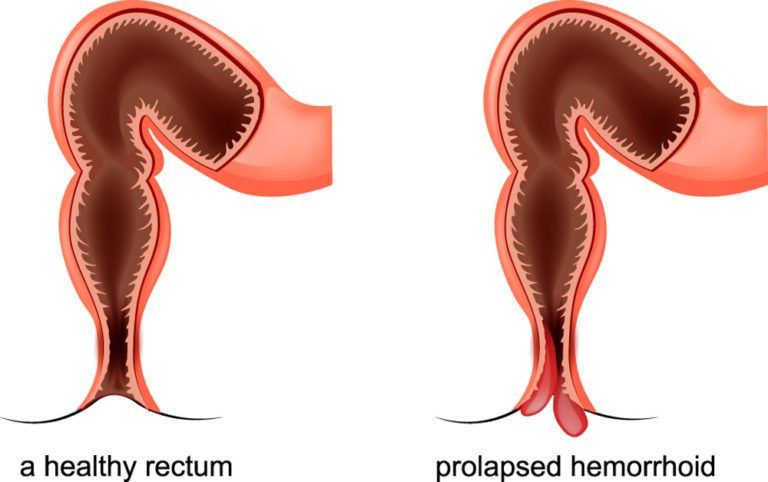Rectal Prolapse

A rectal prolapse is an abnormal protrusion of the rectum through the anus. A prolapse may be very small, or it may extend several inches. It is treated medically with increased fiber intake and the use of laxatives however, most cases of rectal prolapse will require surgical repair.
Did you know…
that rectal prolapse is closely associated with chronic bowel conditions, such as constipation and diarrhea? In fact, up to two-thirds of all people with rectal prolapse also experience straining and constipation during bowel movements. It has also been associated with a history of multiple vaginal deliveries, as approximately two-thirds of people with rectal prolapse have also given birth vaginally.
Frequently Asked Questions
What are the symptoms of a rectal prolapse, and when should I seek treatment?
Rectal prolapse typically presents as a bulging feeling within the rectum. This may be accompanied by rectal bleeding and anal pain, though some people feel little discomfort at all. Initially, it may only occur following bowel movements. With time, however, a prolapse may worsen, causing fecal incontinence. Eventually, the rectum may hang outside of the anus all the time. Many people initially think they have hemorrhoids.
What types of rectal prolapse treatments are available ?
A general surgeon will perform surgery to permanently reposition a prolapsed rectum into its proper place. The procedure may be performed abdominally or perineally depending on the patient’s age, gender and individual health. Most patients spend a few days in the hospital before being sent home to finish recovering. Taking steps to avoid constipation can help prevent rectal prolapse from occurring again.
Is rectal prolapse a life-threatening condition?
In most cases, a rectal prolapse is not dangerous or life-threatening. Patients should expect a prolapse to worsen and become larger over time. Without treatment, the rectum may begin protruding from the anus very easily and damage the anal sphincters, possibly permanently.
Learn more about Anorectal Disorders:


